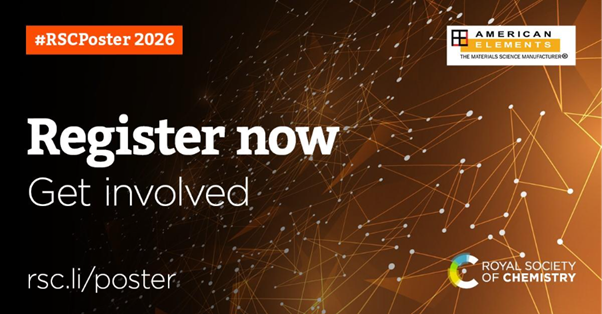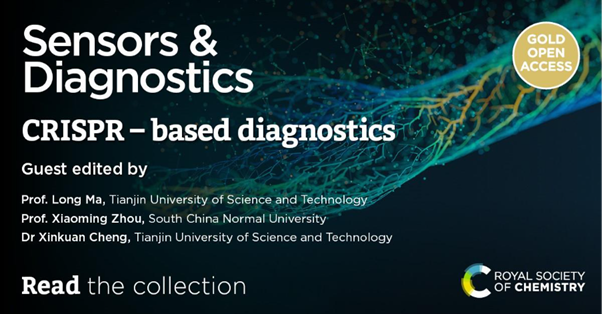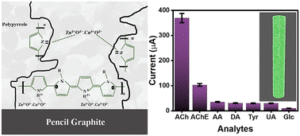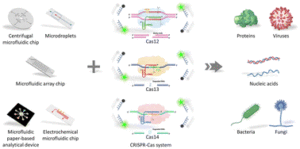Welcome to the first Sensors & Diagnostics newsletter of 2026! We are excited to share a recap of the journal’s progress in 2025, and our most recent updates. We wish all of our readers, authors, reviewers and editors a successful year ahead. Get future updates directly to your inbox with our email alerts. Sign up here.
Latest News
Sensors & Diagnostics articles will soon feature a new section outlining the limitations of the techniques presented, allowing authors to put their work in a practical context for readers. No action is needed by authors at this time. Further details on this new section will be announced in well advance, and will be shared on the journal home page, in our newsletter, and through the social media channels listed at the bottom of this message.

We are very excited to announce that the 2026 #RSCPoster Conference will be taking place for 24 hours starting 3rd March 2026, 12:00 UTC.
The #RSCPoster conference is an annual event that has become a staple on many scientific community calendars. Held entirely online on LinkedIn over 24 hours, the unique format removes the environmental and financial costs of attending a traditional conference, and helps scientific researchers share their work and network across disciplines, wherever they are in the world. Find out more and join in: https://rsc.li/poster
2025 in Review
The Medical and Analytical Device Laboratory (MADLab) at the University of Southern California received our Outstanding Early Career Researcher Award 2024. The team comprising Sina Khazaee Nejad, Haozheng Ma, Abdulrahman Al-Shami, Ali Soleimani, Mona A. Mohamed, Preston Dankwah, Hannah J. Lee, and team leader Maral Mousavi were recognised for their paper “Sustainable agriculture with LEAFS: a low-cost electrochemical analyzer of foliage stress”. Find out more about the team and their article in our blog post.
The journal’s editors were pleased to meet the community at events including Pittcon, EMIM 2025, Biosensors 2025, Eurosensors 2025, Pacifichem, and the 5th Micro-Nano Technology and Medical Health Innovation Conference.
We welcomed two outstanding researchers to the Sensors & Diagnostics Editorial Board as Associate Editors: Prof. Jiashu Sun of the National Centre for Nanoscience and Technology (NCNST) in China and Prof. Hongyan Sun of the City University of Hong Kong. We are excited to have these two outstanding researchers join our editorial board.
We published a new collection of articles on Lateral Flow Assays, guest edited by Jing Wang (Zhejiang University of Technology), Jiangjiang Zhang (Beijing Institute of Technology) and Yanmin Ju (China Pharmaceutical University). Find out about our new themed collections below!
Collections

Sensors & Diagnostics is delighted to welcome papers for a themed collection on ‘Wearable sensors for health monitoring & disease diagnosis’, guest edited by Dr Tailin Xu (Shenzhen University), Prof. Song Yu (City University Hong Kong), Prof. Ming Zhou (Northeast Normal University), Dr Hnin Yin Yin Nyein (The Hong Kong University of Science and Technology). The deadline for submissions is 30 June 2026. Find out more on our blog post.

We’re pleased to announce the publication of a new collection on CRISPR-based diagnostics. This collection was guest edited by Prof. Long Ma (Tianjin University of Science and Technology), Prof. Xiaoming Zhou (South China Normal University), Dr Xinkuan Cheng (Tianjin University of Science and Technology) to highlight the complex interactions between CRISPR-based diagnostics and healthcare by providing valuable insights and practical significance to promote the development of CRISPR-based diagnostics within the field. The contributions span a wide range of topics, including integration of CRISPR with biosensing technologies, point of care diagnostics as well as biomedical and clinical applications of CRISPR based diagnostic tools. Read more on our blog.
Upcoming events
Sensors & Diagnostics is supporting the International Biophotonics & Artificial Intelligence School, 9-13 February 2026, in Florence, Italy. We wish the participants an enlightening visit!
Follow our channels below to keep up to date on the events we’re supporting in 2026.
Submit your work to Sensors & Diagnostics
Find out more about Sensors & Diagnostics on our webpage, where you can also find our author guidelines. Sensors & Diagnostics has received a 2024 Impact Factor of 4.1, has an article acceptance rate of 52%, and provides a first decision on articles sent to peer review in an average of 33 days.
Publishing open access with RSC journals unlocks the full potential of your research – bringing increased visibility, wider readership and higher citation potential to your work. As a not-for-profit organisation serving the chemical sciences community, we ensure that our article processing charge (APC) remains the most competitive of major publishers. More details can be found here and the APC for Sensors & Diagnostics is £2200. You can also use our journal finder tool to check if your institution currently has an agreement with the RSC that may entitle you to a discount of the APC.
Stay Connected
Follow us on LinkedIn and Bluesky for new articles and the latest news from Sensors & Diagnostics and related journals at the Royal Society of Chemistry.

















